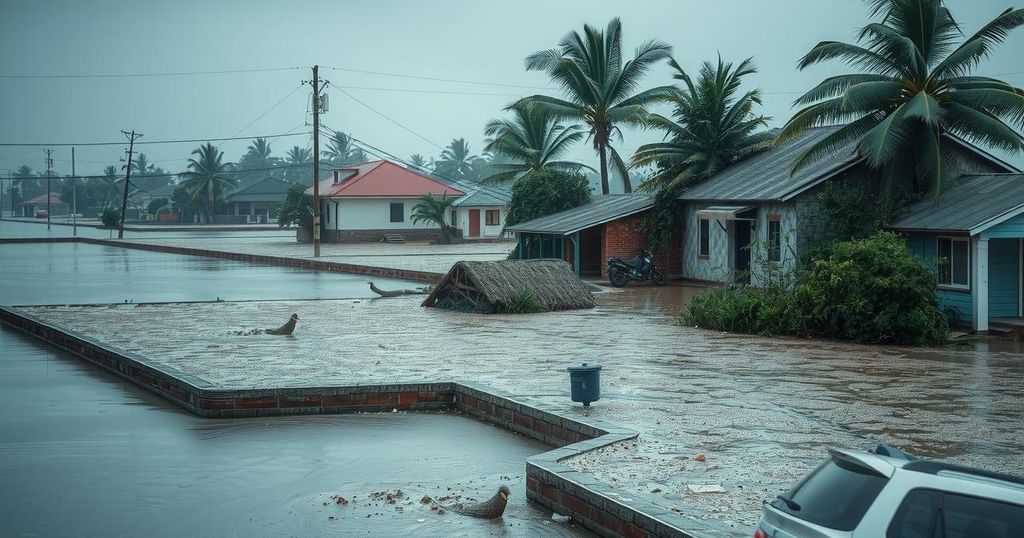Death Toll Rises to 120 From Cyclone Chido in Mozambique
Cyclone Chido has claimed 120 lives in Mozambique and caused extensive injuries, with nearly 900 affected. The storm, which made landfall on December 15, has also damaged homes and vital infrastructure. Its impact has extended to surrounding countries, including Mayotte and Malawi, highlighting a broader humanitarian crisis caused by natural disasters in the region.
Cyclone Chido’s death toll in Mozambique has tragically risen from 94 to 120, as confirmed by the National Institute for Disaster Risk Management and Reduction (INGD). This category 4 cyclone made landfall on December 15, exhibiting wind speeds of 260 kilometers per hour (160 miles per hour) and contributing to 250 mm of rainfall within the first 24 hours. Approximately 900 individuals have sustained injuries due to the cyclone’s impact, with many left homeless as their residences were severely damaged. Furthermore, crucial infrastructure, including educational institutions and healthcare facilities, has also been adversely affected by the storm’s wrath.
The cyclone made its initial strike on the French overseas territory of Mayotte on December 14, where wind gusts surpassed 220 kilometers per hour (136 miles per hour), causing extensive damage. The confirmed death toll in Mayotte stands at 35, although there are claims from various groups suggesting that the actual number could be significantly higher. The effects of the cyclone have reverberated across multiple regions, including Madagascar, Comoros, Zimbabwe, and Malawi, amplifying the scope of this disaster. Recent reports from Malawi’s Department of Disaster Management Affairs (DoDMA) indicate that Cyclone Chido resulted in the deaths of 13 individuals and caused injuries to 29 others, alongside further damage to homes and critical infrastructure.
Cyclone Chido’s devastation highlights the vulnerability of coastal regions to severe tropical storms. Occurring during the cyclone season in the Southern Indian Ocean, this storm exemplifies the increasing frequency and intensity of such weather events due to climate change. Tracking the cyclone’s path reveals its trajectory from Mayotte to Mozambique, illustrating the broader impact on surrounding nations. The response from governments and humanitarian agencies becomes crucial in addressing the immediate needs of affected populations and beginning the long process of recovery and rebuilding after such catastrophic events.
In summary, the aftermath of Cyclone Chido has resulted in significant loss of life and widespread destruction across several nations, particularly in Mozambique, where the death toll has reached 120. The influx of injuries reported suggests a serious public health concern, while the damage to infrastructure necessitates urgent rebuilding efforts. This devastating event underscores the critical need for enhanced disaster preparedness and response strategies in the face of increasingly erratic weather patterns linked to climate change.
Original Source: www.aa.com.tr




Post Comment